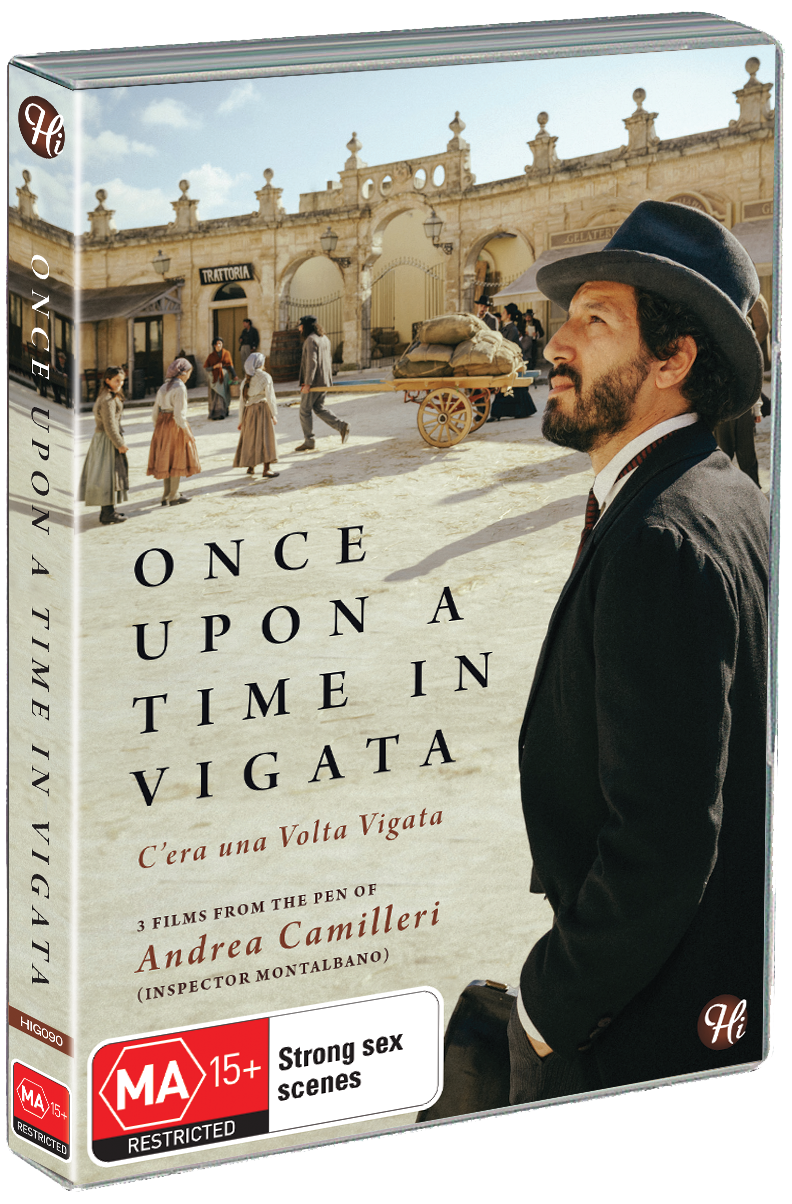Once upon a time in Vigata
The fictional town of Vigata in the 1880s is the scene for three very different tales – all from the pen of Andrea Camilleri. It’s a pre-industrial era, but he still has a canny eye for wordplay, and wicked humour. Verging on the bawdy!
As the series is produced by Palomar, you’ll see familiar sights and actors from Inspector Montalbano, but the stories are far and away from the Luca Zingaretti starring films. The imagination of Andrea Camilleri blended with Sicilian history in quality drama. Forza!
THE KNIGHT’S MOVE (La Mossa de Cavallo)
Montelusa, 1877. Giovanni Bovara is the new chief inspector of the mills, in charge of enforcing the tax on the ground. He is treated with disdain by suspicious locals. He discovers the existence of a clandestine mill and an ingenious system by which the millers are left free to evade the proscribed tax. This is only a beginning, his investigations end up ending up involving something much bigger than he could have expected.
THE TELEPHONE CONCESSION (La Concessione de Telofono)
The Telephone Concession is a comedy of misunderstandings with surreal implications. The simple request to activate a telephone line, requested by Mr. Genuardi, triggers a chain of misunderstandings and cheating that becomes a metaphor for an existential condition. This is vintage Sicilian wit and humour wrapped in a historical tale.
THE HUNTING SEASON (La Stagione de la Cacca)
The hunting season tells the story of a chemist, Alfonso La Matina – or “Fofò” to his friends, who arrives in Vigata in 1880. Sicily is still the scene of clashes between the Savoy and the brigands. In the turmoil of the socio-political climate Fofò decided to return home to open his pharmacy after studying internationally. Coinciding with his return, however, strange events begin to occur - sudden and inexplicable deaths, in which the Peluso, the most powerful family of Vigata, are certainly involved, but which also suggest connections to the newly arrived chemist. A complicated tale, typical of the master Camilleri.

DVD $39.95




